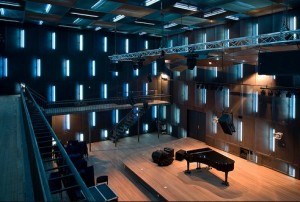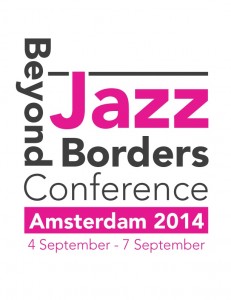 Call for papers
Call for papers
The Third International Rhythm Changes Conference, hosted by the Conservatory of Amsterdam. The event is delivered in partnership with the University of Amsterdam, University of Salford, Birmingham City University, Open University, and Amsterdam World Jazz City 2014.
Keynote speakers
Steven Feld (musician, filmmaker and Distinguished Professor of Anthropology and Music at the University of New Mexico)
John Gennari (Associate Professor of English and Director, ALANA U.S. Ethnic Studies Program, University of Vermont)
Conference outline
Jazz Beyond Borders (and: Beyond the Borders of Jazz) seeks to critically explore how borders – real and imagined – have shaped, and continue to shape, debates about jazz. Rhythm Changes: Jazz Cultures and European Identities (www.rhythmchanges.net) sought to question traditional ways of understanding and articulating jazz history and the concept of moving beyond borders – whether geographical or aesthetic – has played a key role in the project’s research strategy. Borders can be multifaceted and fluid, from geographical boundaries, to disciplinary fields, there can be theoretical or institutional borders, which permeate discourses relating to the cultural, social, political, national and ethnic as well as artistic, performative, canonical, aesthetic, stylistic and genre-related understandings of jazz. Because of the music’s inherent hybridity, jazz provides an excellent lens through which such borders, and border-policing processes, can be questioned and analysed. The music is ideally placed to think about the dividing lines between, for instance, academia and journalism, popular and art music, ‘new jazz studies’ and ‘traditional musicology’, the sonic and the visual, and so forth.
 Jazz Beyond Borders is a three day multi-disciplinary conference that brings together leading researchers across the arts and humanities and is the largest event of its kind world-wide. Based on our previous conferences (Amsterdam 2011 and Salford 2013), we expect well over 100 participants. The Conference committee invites papers and panel proposals that feed into the Conference theme and is interested in featuring perspectives from a range of international contexts. Although not restricted to specific themes, possible topics could include:
Jazz Beyond Borders is a three day multi-disciplinary conference that brings together leading researchers across the arts and humanities and is the largest event of its kind world-wide. Based on our previous conferences (Amsterdam 2011 and Salford 2013), we expect well over 100 participants. The Conference committee invites papers and panel proposals that feed into the Conference theme and is interested in featuring perspectives from a range of international contexts. Although not restricted to specific themes, possible topics could include:
- Exploring borders: framing, understanding and policing borders; transnational, transcultural, postcolonial, and global perspectives; jazz and its musical others; jazz beyond jazz (jazz as lifestyle from cooking to comedy); genre politics; “frontier” myths; reconfiguring gender, race, ethnicity, disability
- Challenging binaries: questioning perceived antonyms such as Afrological/Eurological, composition/improvisation, professionals/amateurs, musicians/audiences, theory/practice
- Jazz historiographies: exploring origins, mythologies, cultural memory, and the different constructions of jazz history
- (Re-)Mediating jazz: evaluating jazz in film, advertising, literature, art, journalism, criticism
- Jazz futures: questioning disciplinary boundaries; new directions for jazz research; changing status jazz studies within musicology
The Conference Committee welcomes individual papers and proposals for panels and round table discussions. For individual papers, abstracts of no more than 300 words should be submitted. Panels and round table proposals should include a session overview, participant biographies and description of individual contributions. Abstracts and proposals (as well as event queries) should be sent to Professor Walter van de Leur (W.vandeLeur@ahk.nl) by 1 March 2014.
Conference Committee
Walter van de Leur (Chair, Conservatory of Amsterdam and University of Amsterdam), Nicholas Gebhardt (Birmingham City University), George McKay (University of Salford), Loes Rusch (University of Amsterdam), Catherine Tackley (Open University), Tony Whyton (University of Salford)
